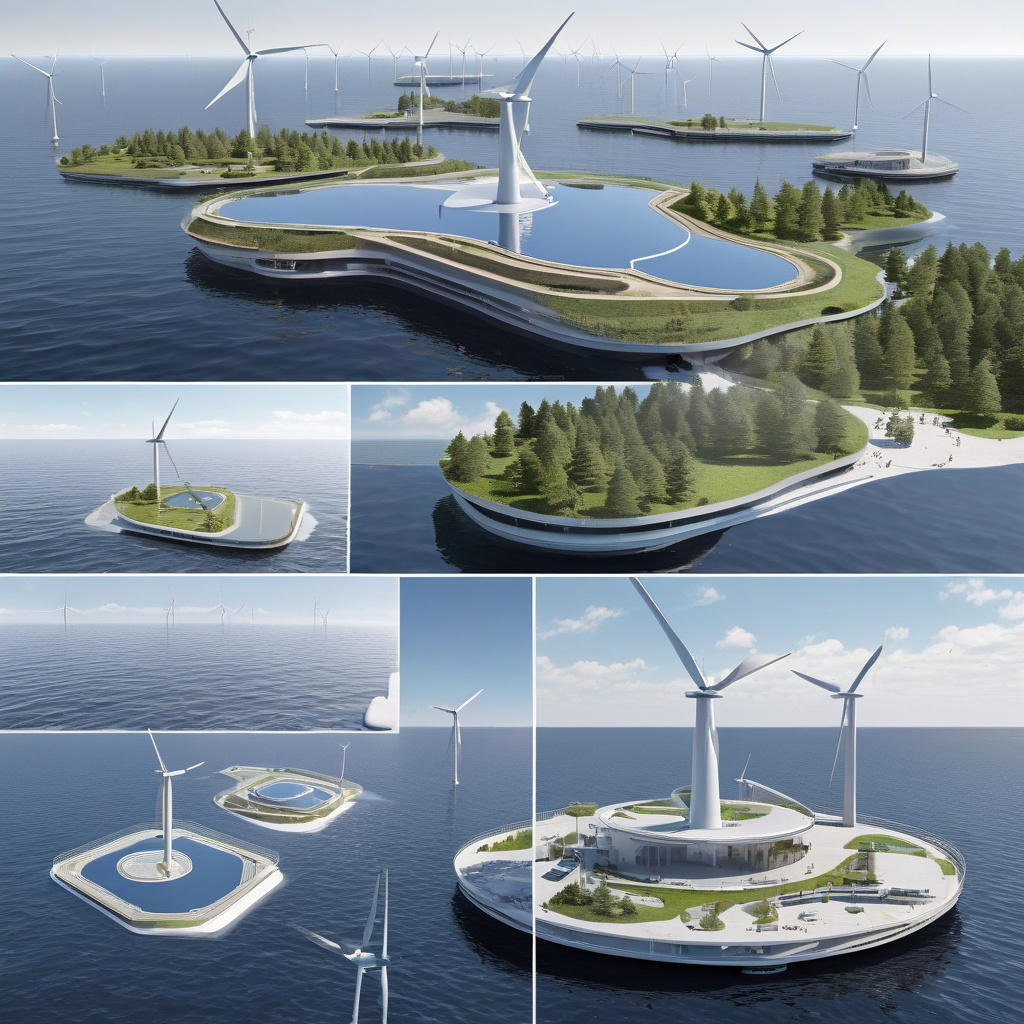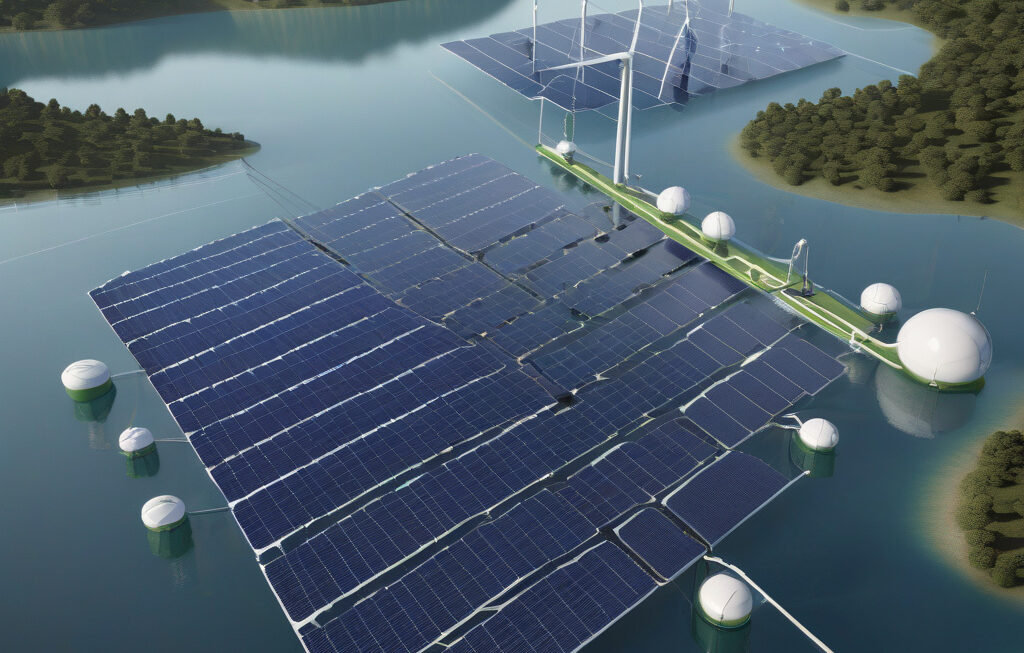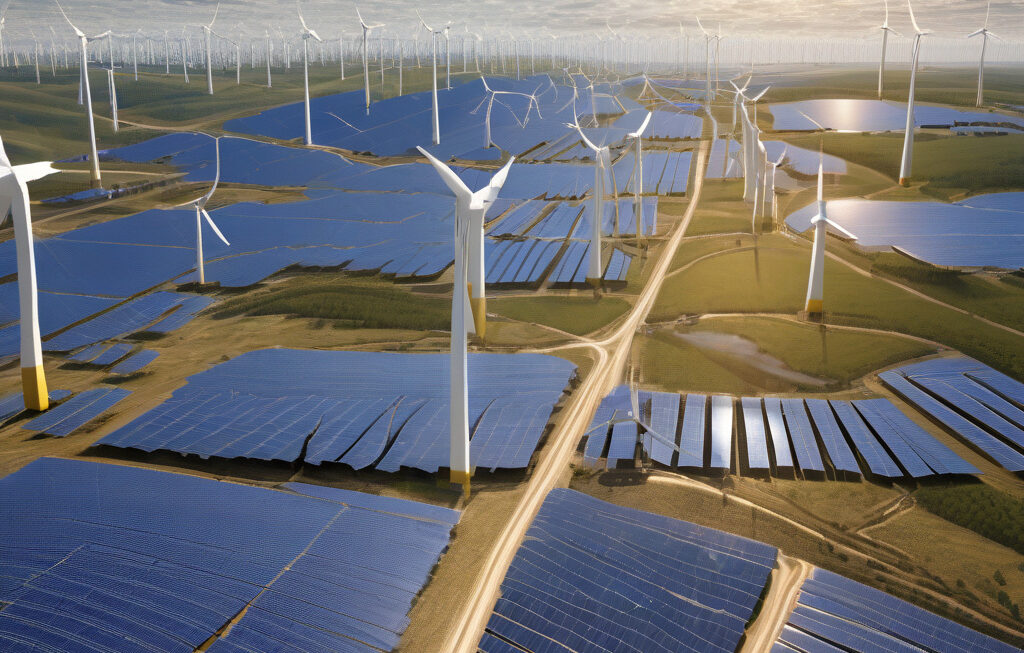Germany Opens First Offshore Floating Plant to Turn Wind, Air, and Seawater into Fuel
A groundbreaking initiative to produce synthetic fuels at sea is now afloat off the German coast. This innovative project involves the creation of the first offshore floating plant that harnesses wind, air, and seawater to produce sustainable fuel. The plant, developed by a consortium of German companies including RWE, is a significant step towards reducing carbon emissions and transitioning to a more sustainable energy future.
The concept behind this floating plant is both simple and ingenious. By utilizing wind turbines to generate electricity, the plant powers a process known as electrolysis, which extracts hydrogen from seawater. This hydrogen is then combined with carbon dioxide captured from the air to produce synthetic fuels such as methane or methanol. These fuels can be used in a variety of applications, including transportation, heating, and industrial processes, offering a clean alternative to traditional fossil fuels.
One of the key advantages of this offshore floating plant is its mobility. Unlike traditional land-based facilities, the floating plant can be easily moved to different locations, allowing it to take advantage of optimal weather conditions for wind energy production. This flexibility not only increases the plant’s efficiency but also reduces its environmental impact by minimizing the need for long-distance transportation of fuel.
In addition to its environmental benefits, the floating plant also has the potential to create new economic opportunities. By leveraging Germany’s expertise in renewable energy technologies, the project is expected to stimulate job growth in the green energy sector and attract investment in sustainable innovation. Furthermore, the production of synthetic fuels at sea could help diversify Germany’s energy sources and enhance energy security in the long run.
The development of this offshore floating plant represents a significant milestone in Germany’s commitment to combating climate change and achieving carbon neutrality. As one of the world’s leading industrial nations, Germany has set ambitious targets for reducing greenhouse gas emissions and increasing the share of renewable energy in its overall energy mix. Projects like the offshore floating plant not only contribute to these goals but also demonstrate Germany’s leadership in driving innovation in the energy sector.
Looking ahead, the success of the first offshore floating plant in Germany could pave the way for similar projects in other coastal regions around the world. Countries with abundant offshore wind resources and a strong commitment to sustainability may see the potential of replicating this model to produce clean fuels at scale. By harnessing the power of wind, air, and seawater, these floating plants could play a crucial role in accelerating the global transition to a low-carbon economy.
In conclusion, Germany’s launch of the first offshore floating plant to turn wind, air, and seawater into fuel marks a significant milestone in the pursuit of sustainable energy solutions. With its innovative approach to producing synthetic fuels at sea, this project showcases the potential for technology to drive positive change in the fight against climate change. As the world continues to seek alternative energy sources, initiatives like the offshore floating plant serve as a beacon of hope for a cleaner, greener future.
renewableenergy, sustainablefuture, offshorefuelproduction, climateaction, greeninnovation












